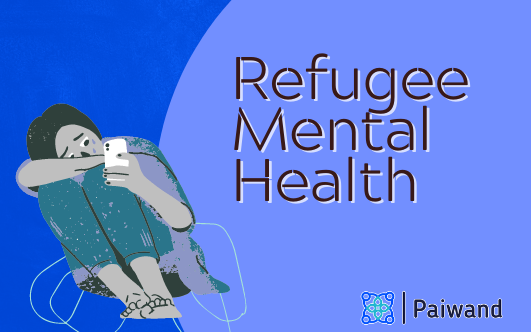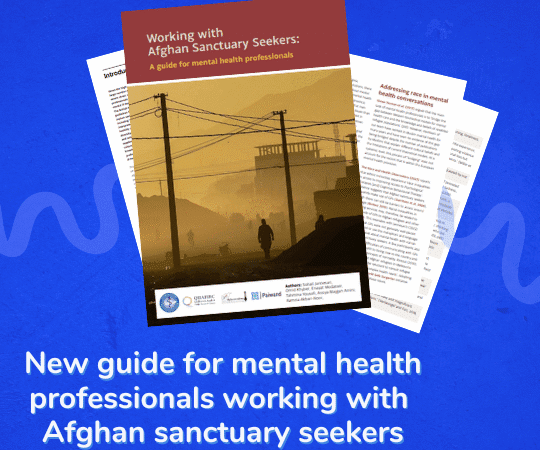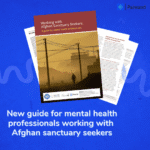Mental Health and the Refugee Experience

Mental Health and the Refugee Experience
Mental health is as important as physical health, yet it is often the part of our wellbeing that we neglect the most. Many of us become so consumed by the noise of daily life that we forget to pause and care for our minds.
Within the Asian community, conversations about mental health are still difficult, and for refugees they are often even harder. Those who have fled their homes in search of safety carry with them experiences of loss, fear, and uncertainty. When they arrive in a new country, these experiences do not simply disappear.
Refugees rarely have a choice in where they are placed. Some are housed in areas that cannot meet their needs or that feel unsafe. This lack of control can lead to feelings of anxiety and depression. The uncertainty of not knowing how long they will stay in one place, combined with limited access to work or financial security, can make life even more difficult.
After escaping danger, many refugees face new forms of hardship. Some experience homelessness or live in temporary accommodation. Others struggle to adapt to a new culture, a new language, and a society that may not always welcome them. These challenges, when added to experiences of discrimination or racism, can weigh heavily on a person’s mental wellbeing.
The Refugee Council has reported that sixty-one percent of asylum seekers experience serious mental distress. Refugees are five times more likely to face mental health issues than the general population in the United Kingdom. Despite this, very few people seek help. The stigma surrounding mental health within refugee communities remains strong. Many endure long periods of sadness, anxiety, and stress without ever reaching out for professional support.
Faith can play an important role in finding peace. For many, prayer offers comfort and hope. In Islam, it is said that God does not burden any soul beyond what it can bear. This belief gives strength to those who continue to face challenges, reminding them that they are not alone and that a brighter future is possible.
Faith can guide the heart, but professional support can guide healing. Speaking with a trained counsellor or psychologist can help individuals understand their experiences and find practical ways to recover. At Paiwand, we recognise the importance of culturally aware counselling. We provide talking therapies in Dari, Farsi, Pashto, and English, as well as educational sessions that teach communities how to understand and manage mental health challenges. Our team also focuses on supporting young refugees and immigrants in Harrow who are learning to rebuild their lives.
If you are struggling with your mental health, please reach out to us. There is no need to face the darkness alone. Support is here, and together we can take the first step toward peace and recovery.





